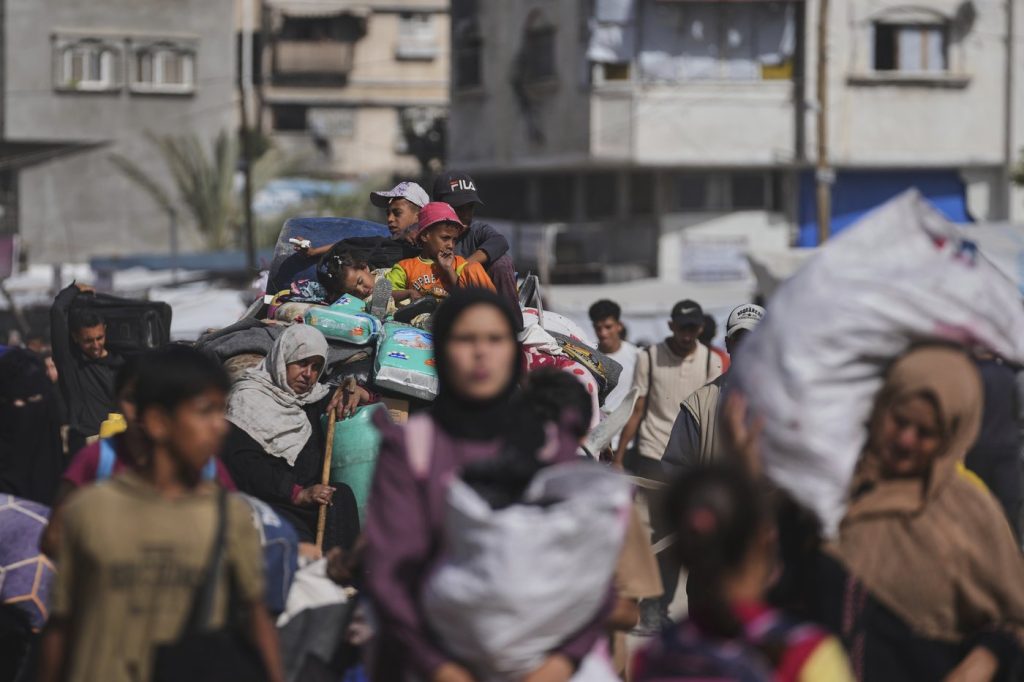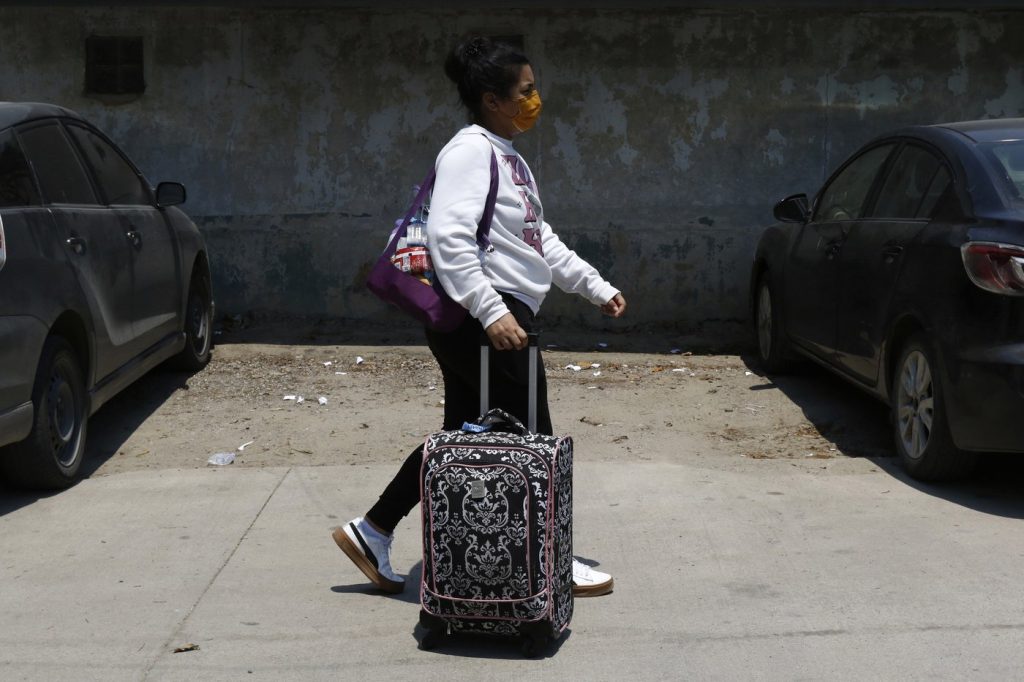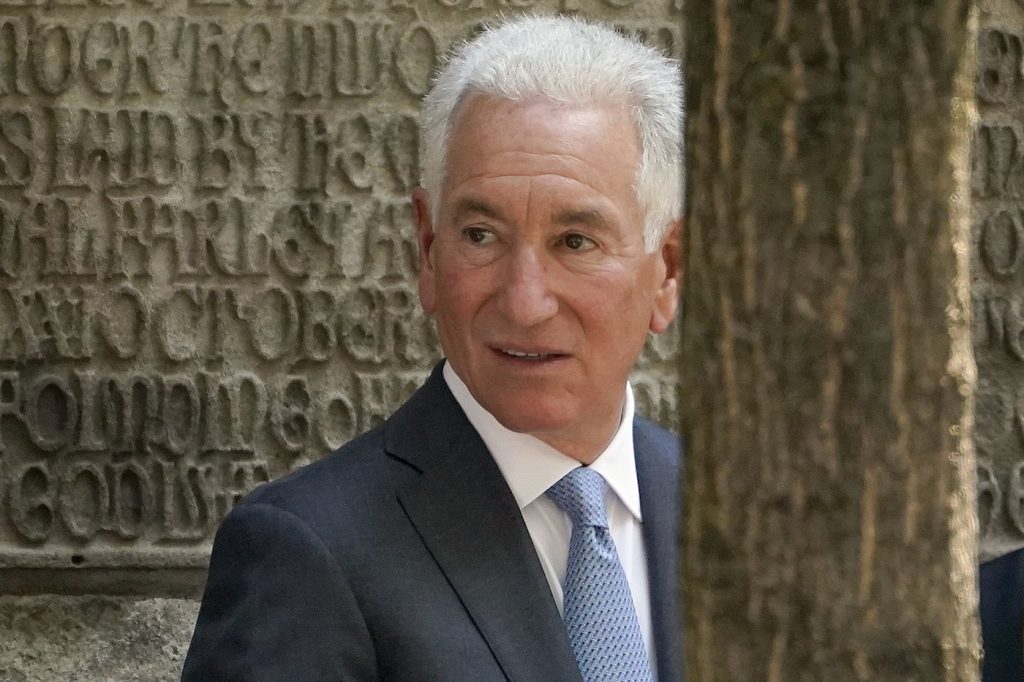TEL AVIV, Israel (AP) — The first few aid trucks entered Gaza on Monday following nearly three months of Israel's blockade of essential supplies such as food and medicine. This announcement was made by both Israel and the United Nations, as Israel faced mounting pressure from international allies, including the United States, over the humanitarian crisis in the region.
Five trucks carrying baby food and other much-needed supplies managed to enter Gaza through the Kerem Shalom crossing. This information was provided by COGAT, the Israeli defense body responsible for coordinating aid to Gaza. The U.N. humanitarian chief, Tom Fletcher, described the delivery as a "welcome development," but emphasized that it is merely a "drop in the ocean of what is urgently needed." He noted that during the previous ceasefire, approximately 600 aid trucks were entering Gaza daily.
Fletcher added that an additional four U.N. trucks were cleared to enter Gaza, with plans for them to arrive on Tuesday. However, concerns were raised about the potential for looting or theft of the aid, given the chaotic ground situation in Gaza. Israeli Prime Minister Benjamin Netanyahu stated that his decision to allow "minimal" aid to Gaza was influenced by allies who warned that they could not support Israel’s military operations if there were "images of hunger" from the Palestinian territories.
Shortly after the announcement of the aid trucks' entry, the U.K., France, and Canada issued a strongly worded joint statement, labeling the aid as "wholly inadequate." They threatened "concrete actions" against Israel, including potential sanctions, for its military actions in Gaza and the occupied West Bank, and called on Israel to cease its new military activities in Gaza, which they described as "egregious."
In response, Netanyahu condemned this statement, calling it a "huge prize for the genocidal attack on Israel" that took place on October 7. Over the weekend, Israel escalated its military operations in Gaza, with orders for evacuations in Khan Younis, the second-largest city in the territory, after previous military operations had already devastated the area.
Israel's military campaign is aimed at putting pressure on Hamas to release hostages taken during the initial attack on October 7, 2023. Hamas has indicated that it is only willing to release hostages in exchange for a lasting ceasefire and an Israeli withdrawal from Gaza.
Netanyahu reiterated Israel’s intention to "take control of all of Gaza" and mentioned plans to promote the voluntary emigration of much of Gaza's population to other countries — a proposition that Palestinians have firmly rejected. In a video statement, Netanyahu referred to the concerns raised by Israel’s allies, stating that they could not accept the reality of "mass hunger" and could not provide support under such conditions.
The Trump administration has shown full support for Israel’s actions while blaming Hamas for the ensuing death toll in Gaza, but it has also expressed increasing concern over the hunger crisis. President Donald Trump, who did not visit Israel during a recent trip to the region, along with Secretary of State Marco Rubio, conveyed their concerns regarding the humanitarian situation.
Netanyahu's statement appeared aimed at mitigating backlash from his nationalist base, which has been critical of the decision to resume humanitarian aid. Aspects of this aid plan involve a U.S.-backed organization managing distribution at secured hubs, which are intended to prevent Hamas from accessing aid resources, according to Israeli officials.
However, U.N. agencies and other aid groups have rejected this plan, arguing that it would not adequately serve the population and would violate humanitarian principles by weaponizing aid. Under this plan, distribution points would primarily be located in southern Gaza, prompting a potential new wave of displacement for many Palestinians who had recently returned to the north.
The joint statement from France, Canada, and the U.K. constitutes one of their most significant critiques of Israel's handling of the ongoing conflict in Gaza and its actions in the West Bank. The three countries articulated their opposition to expanding settlements in the West Bank, which they deemed illegal. While they affirmed Israel's right to defend itself against terrorism, they criticized the military escalation in Gaza as disproportionate.
Separately, a letter from the foreign ministers of Germany, Italy, Japan, and 18 other countries called for Israel to allow full humanitarian access to Gaza by U.N. agencies and non-governmental organizations. The ongoing conflict began as a result of a Hamas-led attack that resulted in significant casualties in southern Israel and has since led to high Palestinian civilian casualties and widespread displacement.












